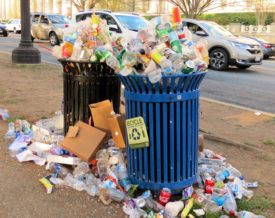Genetic pollution represents a hazard to human and ecosystem health that we don’t consider often enough. According to a Sacramento Bee article last week, Scotts—the Ohio-based lawn care company—was recently fined for allowing genetically altered seeds from test plots to scatter for miles in central Oregon. But the fine, $6,250—half of which was waived—is little more than a slap to the wrist of the giant company.
Earlier this year, the Canadian Supreme Court ruled (abstract only) that neighboring farmers can be held financially responsible for growing patented crops even when seeds blow unwelcomed into farmers’ fields. And just last month, the FDA circulated a draft policy that would weaken already insufficient federal oversight of new genetically altered products under development in fields just like the ones in central Oregon. (In this NY Times story, the FDA’s reliance on industry to self-monitor and report is further explored).
Like toxics that flow unregulated into our bodies, untested and potentially harmful genetic experiments shouldn’t be permitted to flow into our fields and food supply without a reasonable degree of certainty that they are safe to us, and to the natural ecology of which they will become a permanent part.








